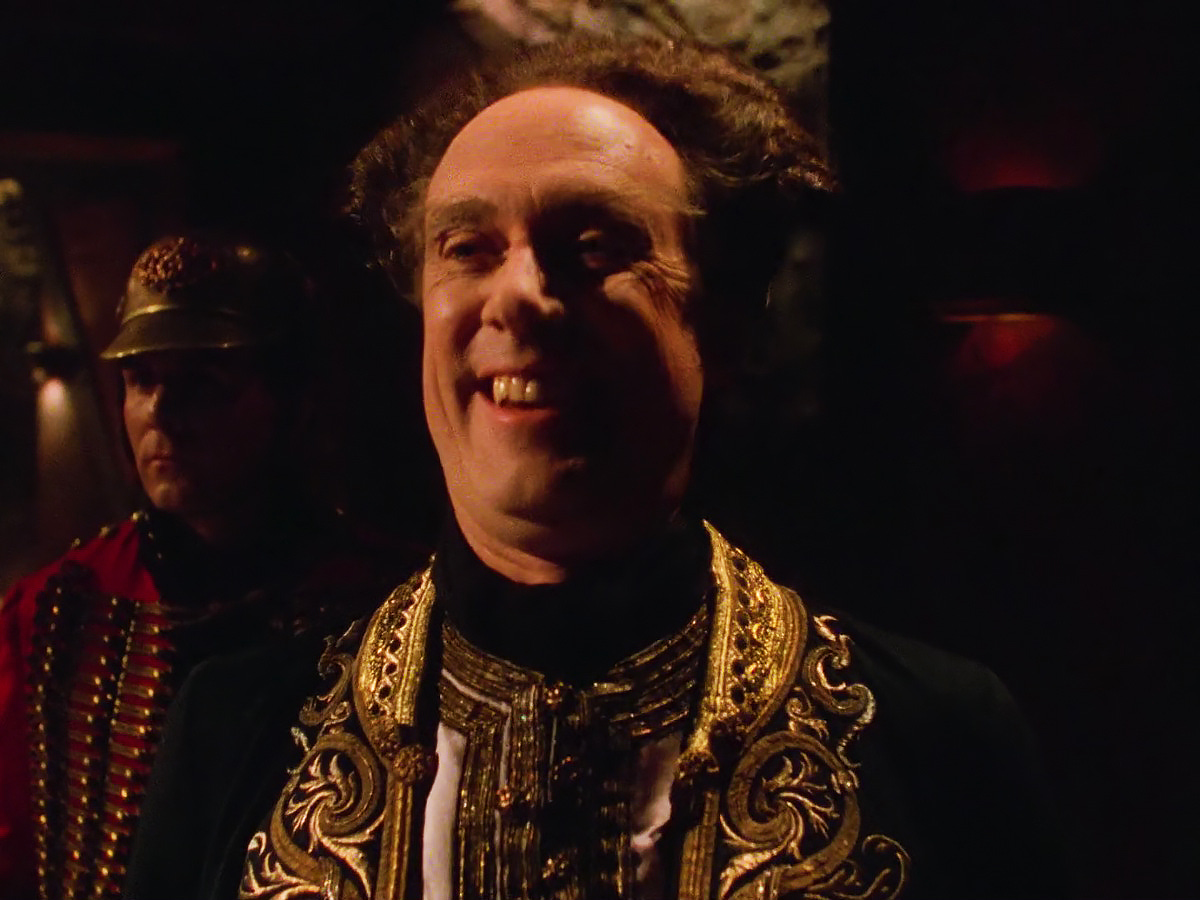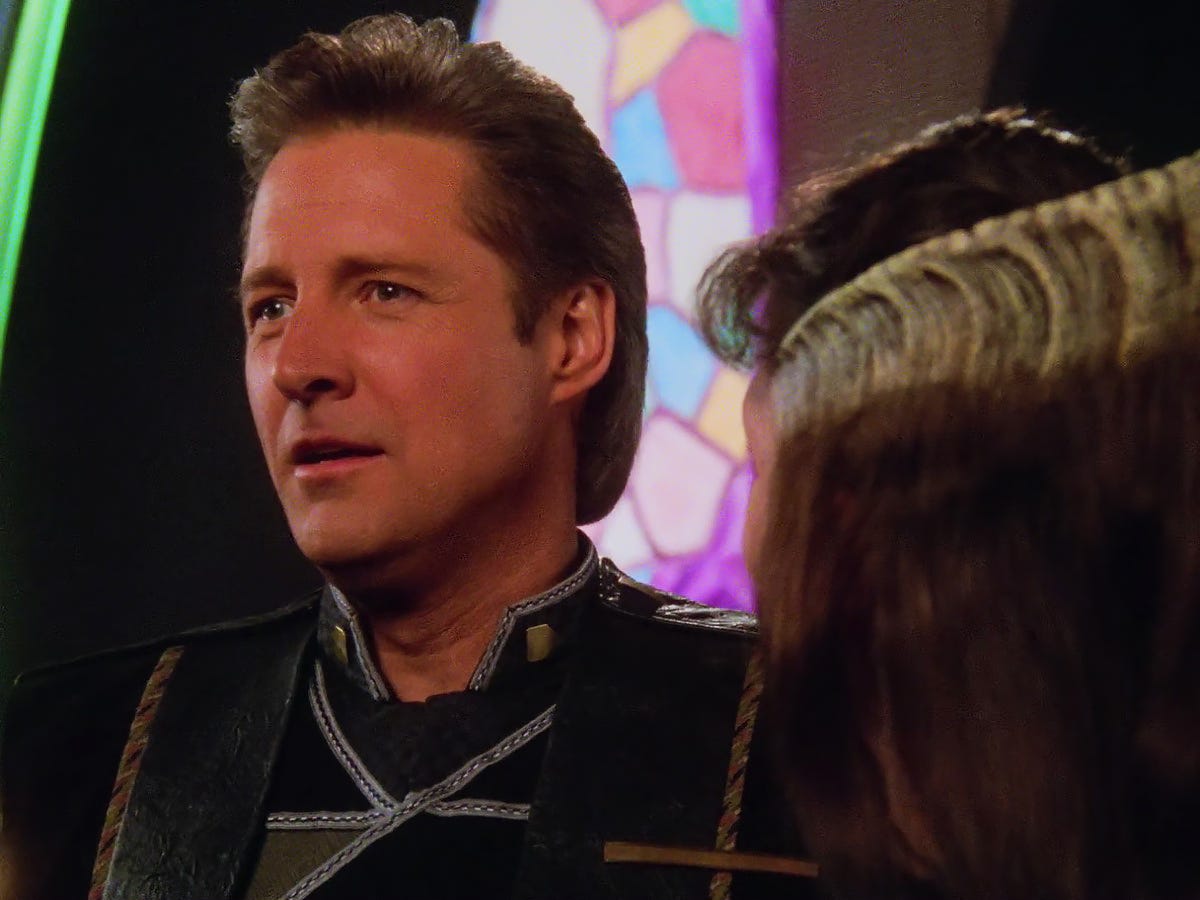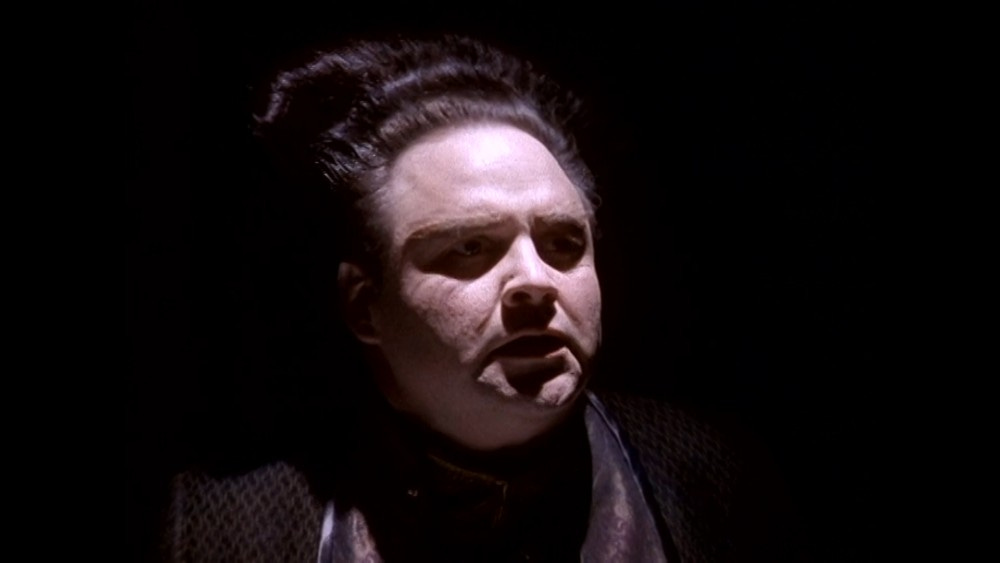s3e20: And the Rock Cried Out, No Hiding Places
The world is changing every day, the only question is who's doing it
We’re watching the pioneering 90s TV show Babylon 5. If you want to join us, hit subscribe then go to your account and turn on the Let’s Watch notifications.
We’re on the down slope of the rollercoaster now, heading towards the season 3 finale, as announced by the mysterious ‘Z Minus 14 Days’ title card. It’s an effective trick, especially at the end, when we realise the countdown wasn’t even about this episode.
Let’s talk about that astonishing crash cut, when the show suddenly brings in piano as Refa begins to run, and then we go to a fast zoom revealing the the church service. It’s striking precisely because Babylon 5 doesn’t do that kind of thing often. Aside from Mike Vejar’s visual dexterity, the show is stylistically quite simple most of the time.
At times, that lack of showiness can feel overly theatrical, or low budget. Other times, it come across as gritty and realistic. What we don’t tend to get are filmmaking quirks to enhance the emotion or drama of a scene at the expense of realism. In ‘And the Rock…’ they flip between the desperate, violent tunnels of Narn and the joyous singing on Babylon 5, many light years away. The two scenes have no connection and are not linked in the plot at all, yet their juxtaposition enhances both.
Thematically, we have Sheridan learning to lean on others, just at the point when the new alliance is starting to find its feet. On the other, we have the Centauri Republic and specifically the schemes of Londo and Refa coming to a violent end. The stylish flourish with the use of the song elevates the sequence significantly, and it is absolutely startling when the music kicks in.
It’s all backed up by great performances from William Forward, Peter Jurasik and Stephen Furst. It’s been a while since we’ve had some proper Centauri political intrigue, and the skullduggery here is delicious: especially Londo’s solution for tricking the telepath.
Elsewhere, we have the visiting religious leaders. It’s a bit odd the two of the leaders never speak and then disappear off-screen, but that’s the guest cast budget getting in the way, presumably. Fortunately, Reverend Dexter (Mel Winkler) is compelling and easily carries that part of the show. There’s a particular bit when he’s talking about his wife, and I got the distinct impression that she was no longer around — it’s not in the dialogue, but in the delivery. It’s a performance that could have been all bluster and proclamations, but Winkler does a lot of fun, subtle stuff and gets all the best lines.
The episode is primarily shuffling things into place — telepaths, Centauri, the White Star fleet, Shadow tactics — but it does it in such a charismatic way that you don’t really notice or mind.
Next up is ’Shadow Dancing’.
‼️ SPOILER STUFF ‼️
White Star fleet! I’d forgotten that got introduced in this episode. My strongest memories of Babylon 5 are focused on season 4, I think, because I’ve found it hard to remember when the fleet was introduced, or how and when the Interstellar Alliance came to be.
Refa is done, which is a shame given Forward’s excellence, but it opens the door for more Centauri intrigue next season and the introduction of the frequently name-dropped but never seen Emperor Cartagia.
We learn about the Shadows’ plan to attack the refugee convoy, which leads directly into the next episode.
Something else we get, although it’s not emphasised in this episode, is Londo and G’Kar working together. It’s unexpected and paves the way for their odd friendship after the wars. Although Londo is actually wrong about Refa (he didn’t kill Adira), this is perhaps Londo’s first step towards some sort of minor redemption — even if, at this point, it’s motivated purely by revenge.







